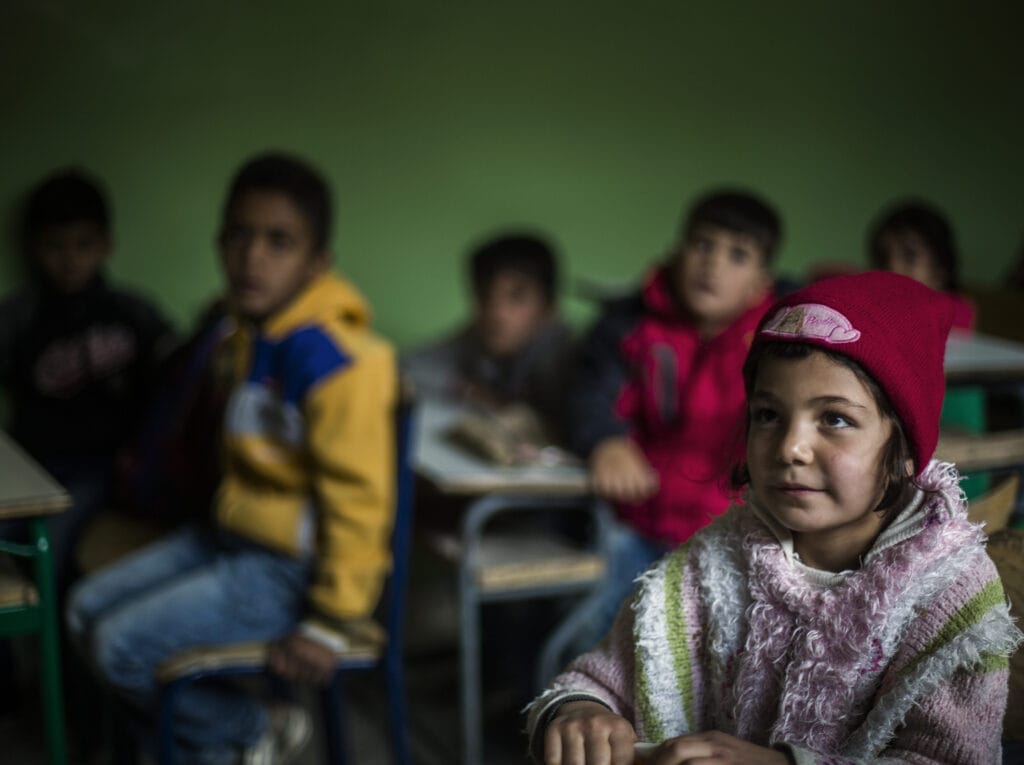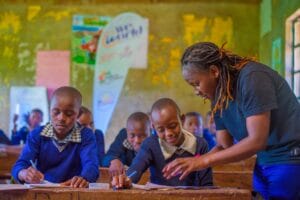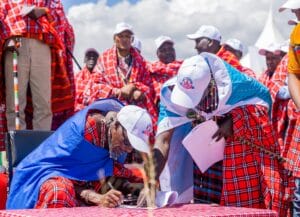
More than one year out of school
Students in Lebanon are feeling the consequences of the pandemic, just like their peers from all over the world. Unlike the others, however, in Lebanon, children and young people at school age have to face an even more dramatic situation characterized by multiple crises.
Even before the COVID-19 outbreak, schools in Lebanon were shut for weeks on end following the civil protests, which erupted in October 2019. Due to the protesters’ road blockages, students saw their school life disrupted as they had difficulties in reaching their schools.[1] A few months had passed since their reopening that on March 2, 2020 in an effort to curb the spread of the pandemic, the Government of Lebanon (GoL) decided to close all schools and educational institutions in the country. Consequently, school-aged children and youth lost almost the entirety of the 2019-2020 academic year.
In the course of the Focus Group Discussions and Key Informant Interviews, conducted last December with heads of municipalities and specific categories of the population, a disconcerting picture came out: not only the education sector has not been spared by the ongoing crises, it is widening the gap among students, compromising the future of the most vulnerable ones.
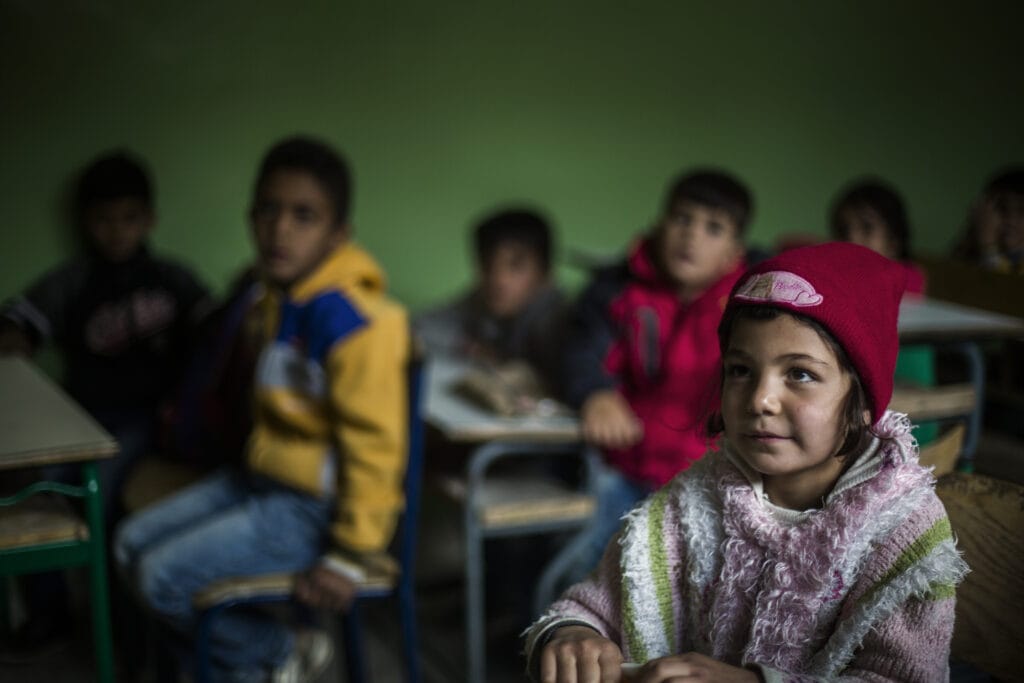
From private to public schools
Due to the parents’ inability to no longer pay the annual fees, a considerable amount of students were forced to shift from private to public schools. Only the children of public sector employees haven’t been affected by this trend as, in their case, education fees are mostly covered by the government.
Regardless, the transfer from private to public schools is putting public education under a lot of strain. Because of neglect and underfunding, public schools are lacking in terms of available space and rooms. According to the Ministry of Education and Higher Education (MEHE), the premises of over one third of public schools are in bad condition and need major rehabilitation[2]. Indeed, all the interviewees have confirmed that, in their respective villages, public schools need to be rehabilitated, as “they do not have the capacity to take in more students”. For example, in Labwe, a village in North Bekaa, the only public school saw an exponential increase in enrolment numbers. Compared to previous years where there were 100 students, the new academic year registered about 700 Lebanese students.
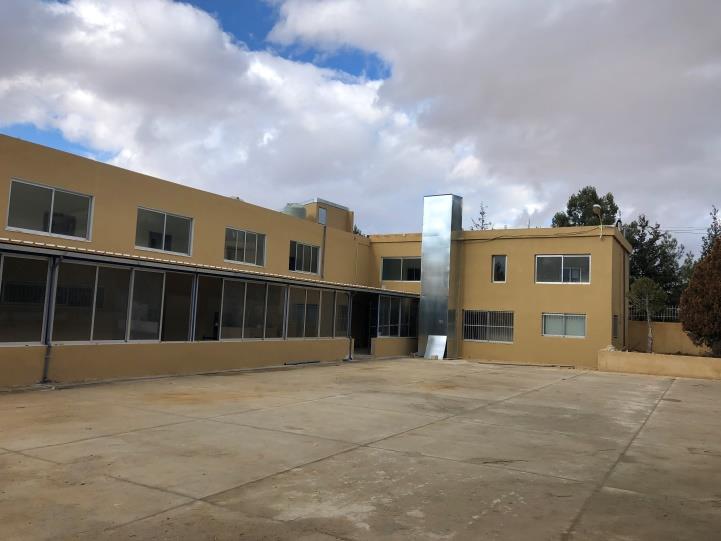
There is, however, an exception in the area: the Nabi Othman public school. Rehabilitated by WeWorld-GVC within the AICS-funded project SCALE, it is considered a “model school” by the interviewees, and, as such, it hosts a considerable number of students coming from the nearby villages. Indeed, the rehabilitation works aimed at improving the safety and comfort of the schoolchildren all the while creating an accessible and inclusive structure for people with special needs and disabilities.
The problems with distance learning
Overcrowding and poor school conditions aside, the students are burdened by an additional difficulty. Similar to elsewhere in the world, when pandemic erupted, students in Lebanon could not attend school in person and had to switch to distance learning. For a family living in Akkar and in North Bekaa, the poorest regions of the country, online learning became problematic for a number of reasons.
First, not all households have access to an internet connection[3]. When they do, however, the connection is far from ideal. In addition, the numerous daily power cuts undermine the students’ concentration and level of attention.
Second, most of the parents cannot afford to buy digital equipment due to their expensive prices, and if they manage to do so, it is by means of debt. Furthermore, if a family has more than one child, each one of the children will need a separate device to attend his/her designated classes. Many interviewees claim this is causing a huge burden for parents who don’t have the resources to buy such items anymore and is also creating a lot of tension between children. Despite the importance of education, many schoolchildren risk dropping out of the education system to help their parents out with work as “there are more urgent survival needs now such as food, housing rental fees, medicines and fuel for heating.”[4] Among the young people interviewed, many claimed to have resorted to online tutoring as a way to make money to support their families.
Finally, it is worth mentioning another issue: the parents’ inability to provide support and follow up on their children’s studies because they are not familiar with the technology. With no supervision from their side, there is a high chance their children lag behind.
Socioeconomic issues along with the pandemic outbreak have been putting under substantial pressure an educational system already overstretched to its capacity. Particularly worrisome are the repercussions on the young students who decide to entirely give up high school or university and instead join technical institutions. “In the middle of the deteriorating economic situation,”, a young student claims “it allows me to learn a specific profession within a very short time (2 years), and then find job opportunities at a young age to support my family in generating income.”[5]
Cover photo: Syrian students attend a lesson during the second-shift classes organized for Syrian refugees in Northern Bekaa (2018, WeWorld-GVC Archive). © Diego Ibarra Sànchez
**We are operating under the ECHO-funded Lebanon Protection Consortium to provide support to the Syrian refugees in North Bekaa and Akkar**
[1]Protest Roadblocks in Lebanon Disrupt Traffic, Force School Closures, November 5, 2019.
[2]Lebanon Crisis Response Plan 2020, p. 24.
[3]Coping with multiple crises Impact of the COVID-19 and financial hardships on education in Akkar and Bekaa, p. 5.
[4]Quote by one of the interviewees during a Focus Group Discussion in North Bekaa.
[5]Quote by one of the young people interviewed in Hermel during the FGD.

